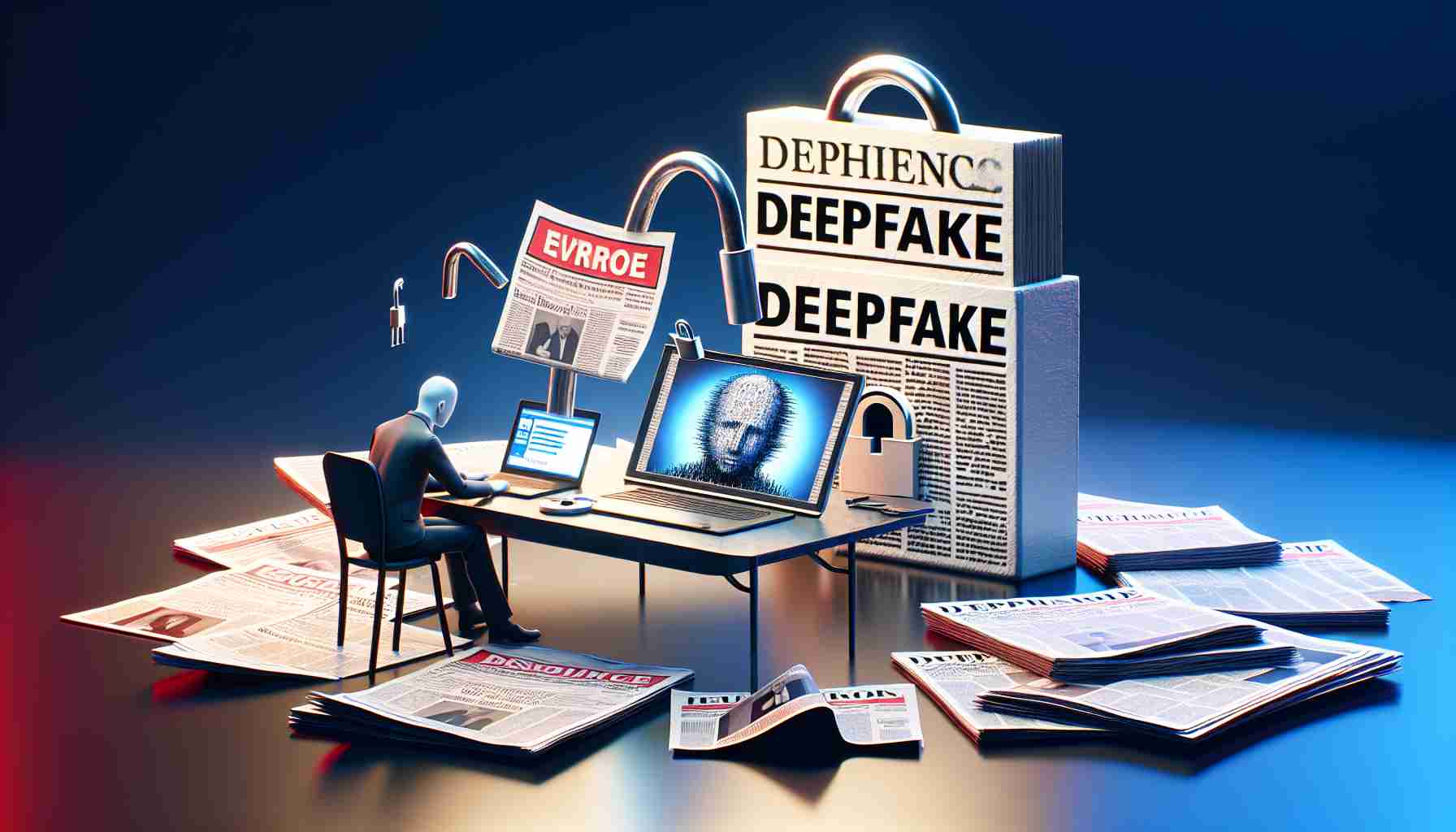IT Experts Highlight the Threat of Deepfakes on Elections
The widespread fear among IT specialists over the impact of AI-generated deepfakes on political processes has recently come to light. A significant majority, constituting 65% of these professionals, expressed concern that the outcome of future general elections could be swayed by such deceptive content.
Strong Advocacy for Transparency in AI Campaign Use
An overwhelming 92% of the surveyed individuals from the IT field have voiced their support for political entities to publicly disclose the specifics of their AI utilizations within election campaigns. They are advocating for a commitment to transparency from political parties as a measure to ensure accountability and trust.
Government Efforts to Combat Misinformation
A previous announcement by the Technology Secretary affirmed the government’s collaborative efforts with online platforms to establish comprehensive defenses against deepfakes. With the promise of robust strategies in place by the next election, scheduled no later than January 2025, the government demonstrates its commitment to safeguarding electoral integrity.
Enhancing Public Awareness and Technical Solutions
The survey highlighted the necessity for both public education and technological advancements to combat the proliferation of deepfake content. Ideas such as watermarking and clear labelling of AI-generated materials are suggested as some of the top methods to mitigate the risks.
Departmental Response to Misinformation
The spokesperson for the Department for Science, Innovation and Technology outlined their extensive preparations to counter misinformation swiftly. Additionally, forthcoming measures, including the Online Safety Act, will mandate the prompt removal of illegal misinformation from social media platforms, ensuring a more informed public discourse.
Deepfakes are AI-generated videos or audio recordings that can make it look and sound like real people said or did things they never actually did. As the technology behind deepfakes has become more accessible and sophisticated, concerns have grown about their potential to spread misinformation and undermine democratic processes, particularly during election periods.
Important Questions and Answers:
– How can deepfakes affect elections? Deepfakes can undermine the integrity of elections by spreading false information about candidates, manipulating voters’ perceptions and potentially changing the outcome by influencing voter behavior.
– What measures can be taken to combat deepfakes? Measures include public education on media literacy, development and deployment of detection technology, legal frameworks enforcing the removal of deepfakes, and transparency from political campaigns regarding AI use.
– Are current laws sufficient to handle deepfake issues? Many jurisdictions may not yet have laws that specifically address deepfakes, and existing laws may not be adequate to deal with the rapid dissemination of AI-generated content.
Key Challenges:
– Detection: Quickly and accurately identifying deepfake content remains technically challenging.
– Public Awareness: Educating the public about the existence and dangers of deepfakes is essential, yet difficult given the often convincing nature of the content.
– Regulation: Creating and enforcing regulations that balance between curbing the spread of misinformation and protecting freedom of speech creates a significant legal and ethical challenge.
Controversies:
– Censorship: Efforts to remove deepfakes may raise issues regarding censorship and the suppression of legitimate political discourse.
– Privacy: The use of personal images or voices in creating deepfakes without consent raises serious privacy concerns.
– Misinformation: There is a risk that legitimate content could be dismissed as deepfakes, adding another layer of confusion to public discourse.
Advantages and Disadvantages:
– Advantages include increased awareness about misinformation and potentially more informed and discerning voters if educational campaigns are successful.
– Disadvantages include the potential for deepfakes to spread rapidly across social networks, causing confusion and mistrust, and the difficulty in distinguishing real content from manipulated media.
For further reading on the topic, related links include:
– Artificial Intelligence Government Resources
– MIT Technology Review
– Electronic Frontier Foundation
In conclusion, tackling deepfake concerns ahead of general elections is an issue that encompasses IT expertise, government regulation, public awareness, and technological solutions. The dialogue around deepfakes is multifaceted, touching on aspects of trust in media, the protection of democratic processes, privacy, and the ethical implications of AI technology.
The source of the article is from the blog scimag.news

